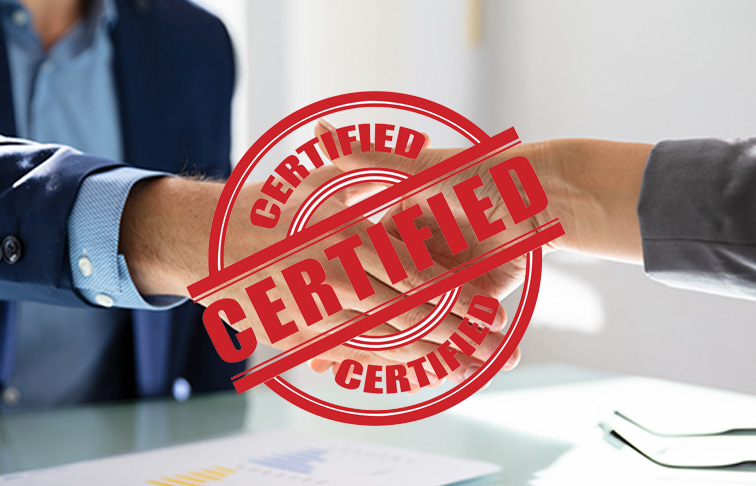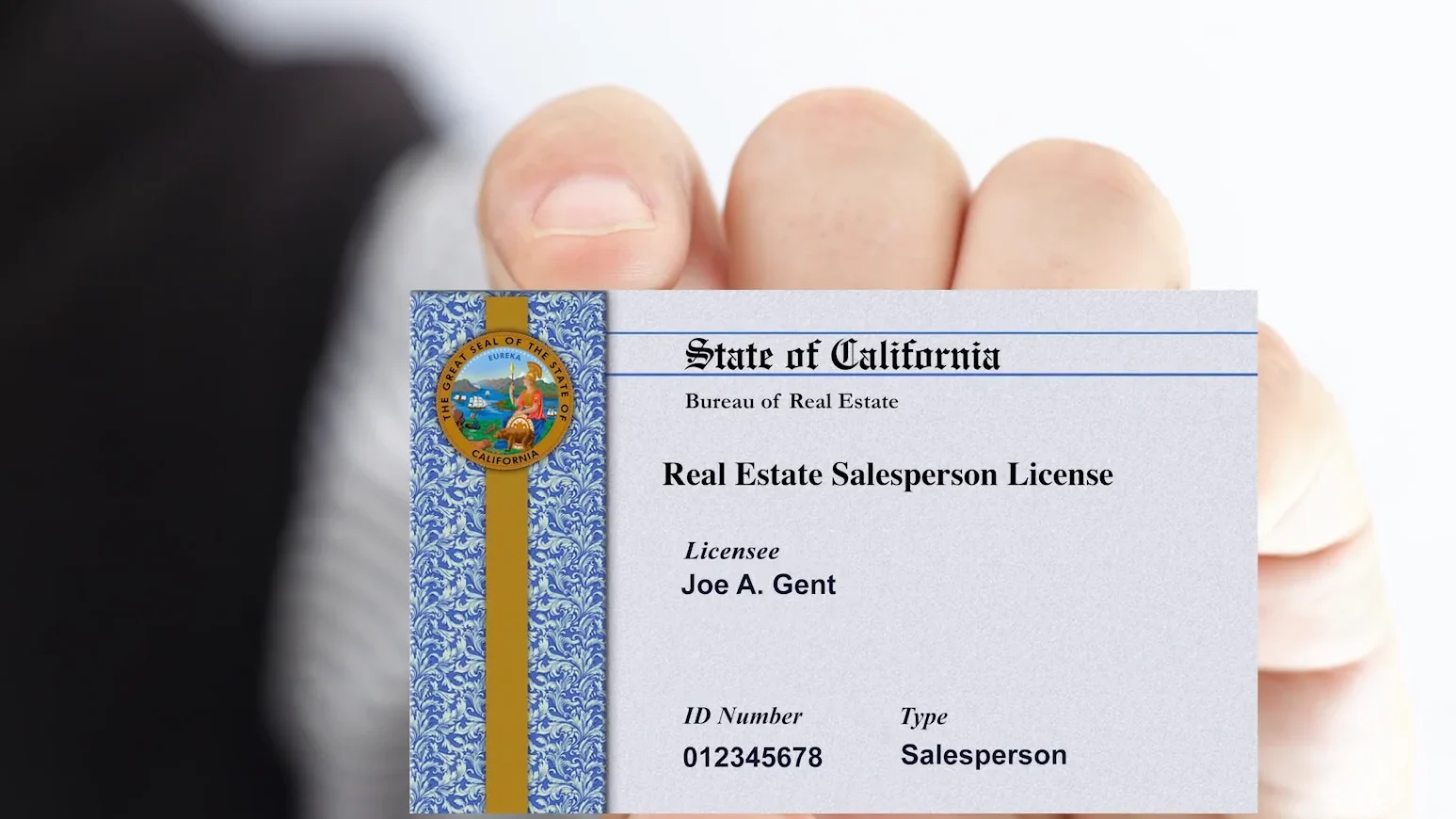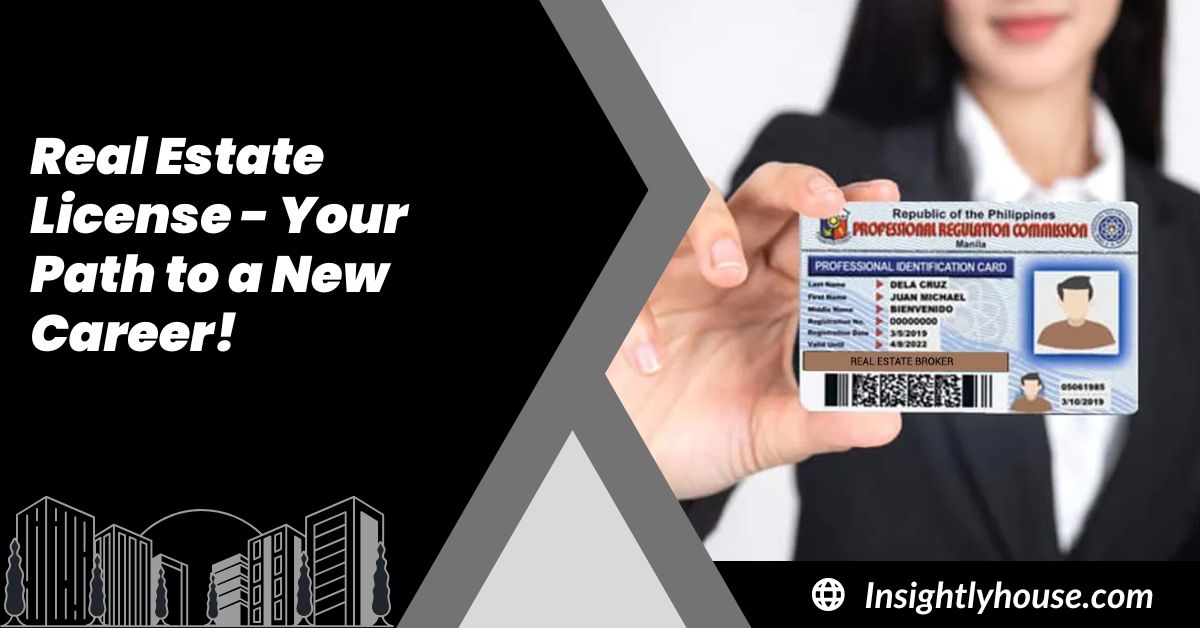Are you wondering how to get a real estate license and kickstart your career in the dynamic world of real estate? Earning your real estate license is the first step toward a rewarding career in this thriving industry.
A real estate license is a legal authorization issued by state governments that allows individuals to represent buyers and sellers in real estate transactions. All 50 states require real estate agents to be licensed.
This guide will walk you through the essential steps of getting your real estate license. Whether you’re pursuing it online or in person you will get important details specific to states like Texas, Florida, and California.
What Is a Real Estate License?
A real estate license is a legal certification that allows you to act as a professional in buying, selling, and managing real estate properties. This license will allow you to represent clients in real estate transactions and earn commission-based income while building a successful career.

Why Get a Real Estate License?
Having a real estate license opens up numerous career opportunities. Here are a few reasons why it’s worth considering:
- High earning potential: Successful agents can earn significant commissions.
- Flexibility: Work on your schedule, as real estate is often a self-driven business.
- Growth: The real estate market continues to grow, offering job stability and opportunities for advancement.
Choose the Type of License:
There are two types of licenses you can consider:
- Salesperson License: This license is required for agents who work under the supervision of a licensed broker. With this license, agents can assist clients in buying, selling, and renting properties.
- Broker License: This license is for individuals who wish to operate independently. Brokers have the authority to run their real estate business hire and manage other agents. A broker license generally requires more experience and education than a salesperson license.
Real Estate License NY – Step-by-Step Guide for New York!
If you’re interested in becoming a real estate salesperson in New York, here’s an easy-to-follow guide to getting your Real Estate License in NY. To become a real estate salesperson in New York, you need to meet the following requirements:
- Be at least 18 years old.
- Complete 77 hours of approved real estate-qualifying education.
- Pass the New York State Real Estate Salesperson Examination.
- Be sponsored by a New York State (NYS) licensed Real Estate Broker.
- Have a valid NYS photo driver’s license or a non-driver ID card.
Step 1: Take the Required Education
To meet the real estate license requirements, you must complete a 77-hour curriculum at an approved real estate school. These courses cover essential topics such as property law, ethics, and the principles of real estate.
You can easily find a list of approved schools through the NYS Department of State website, making it simple to choose a provider that fits your schedule and preferences.
Step 2: Pass the Exam
Once you’ve completed the coursework, you’ll need to pass the NYS Real Estate Salesperson examination. This is a multiple-choice test based on the 77-hour pre-licensing curriculum. You will have 1.5 hours to complete it. The exam will test your knowledge of topics like contracts, agency laws, and real estate finance.
To schedule your exam, you will need to create an account on eAccessNY, where you can view your exam details and results.
Step 3: Find a Broker to Sponsor You
Before applying for your license, you must be sponsored by a New York State licensed real estate broker. This broker will supervise you while you gain experience in the field. Once you have a broker, they will authorize your application.
Step 4: Submit Your Application
Submit your completed application online through eAccessNY, along with the application fee of $65. You’ll also need to provide a government-issued photo ID to verify your identity.
Step 5: Receive Your License
Once your application is approved, your Real Estate Salesperson License will be mailed to your business address. Be sure to renew your license every two years by submitting a renewal fee of $65.
Must Read: Why Should I Use Asset Recovery Demolition?
Get Your NY Real Estate License – Special Testing and Cost Details You Need to Know!
If you have any disabilities or need special accommodations, you can request special testing arrangements by contacting the NYS Department of State. Additionally, information on translation services for the exam is available if needed.

Costs Involved:
| Service | Fee |
| Initial Application | $65 |
| Written Exam | $15 |
| License Renewal (Every 2 years) | $65 |
| Name or Address Change | $10 |
| Duplicate License Request | $10 |
These are the basic fees associated with obtaining and maintaining your Real Estate License in NY.
Pre-License Education at a Real Estate License School – Get Ready to Sell!
To get your real estate license you’ll first need to complete pre-license education through a real estate license school. These schools provide essential training that covers a broad range of topics necessary for passing the licensing exam and succeeding as a real estate agent. Here’s what you can expect to learn:
Key Topics in Pre-License Education:
- Property Laws: You’ll study federal, state, and local property laws that govern real estate transactions. This includes understanding property rights, zoning laws, and environmental regulations.
- Ethics and Professional Conduct: Learn the standards of professionalism and ethical behavior expected in the real estate industry. This ensures you handle transactions responsibly and maintain trust with clients.
- Contracts and Financing: You’ll dive into the various types of contracts used in real estate transactions, such as purchase agreements and leases. Additionally, you’ll learn about financing options and how to guide clients through mortgage and loan processes.
Online Education Options:
In states like Florida real estate license and California real estate license, you can find flexible real estate license online programs. These online courses are perfect for individuals who need a more adaptable learning schedule. Studying online allows you to complete your coursework at your own pace.
New York-Specific Programs:
If you’re pursuing a real estate license in New York online, you can also take advantage of accredited online programs. These programs offer flexibility while meeting the state’s requirements for real estate education.
Must Read: 6434 County 20 Beulen North Dakota 58523 – Complete Guide!
Real Estate License Online – A Convenient Way to Get Licensed!
Online courses for getting your real estate license. It would be a perfect option for those looking for something that is both convenient and flexible. With the capability of studying at home, online training is great in helping accommodate one’s hectic schedule.

Why Should You Choose Real Estate License Online Programs?
- Learn at Your Own Pace: With online courses, you can learn when it suits you best. You can go at your own pace and move through the material as quickly or slowly as you need to.
- Quality Education: Online programs are designed by experts to make sure you learn everything you need to pass your state’s exam. Whether you’re getting a real estate license in New York online or a real estate license in California, you’ll get all the important information in one place.
- Cost-Effective: Online programs are often cheaper than in-person classes, making it a great option for people on a budget.
Most In-Demand Online Real Estate States:
Real Estate License Texas: In Texas, you have to complete 180 hours of coursework. All the courses that you will need to pass the exam are available online.
- Real Estate License Florida: In Florida, you have to complete 63 hours of pre-license education. The online schools make it easy to complete the courses in your own time.
- Real Estate License California: For California, the courses needed must add up to 135 hours, for which various online programs will train you to obtain the license.
What Is The Pass Rate For The Real Estate Licensing Exam?
The pass rates for real estate licensing exams in the United States vary significantly by state and can fluctuate year to year. Here are some key statistics:
- New York: The pass rate generally hovers around 58-60%, indicating that nearly half of the test-takers need to retake the exam.
- Florida: The first-time pass rate for the sales associate exam ranges from 50% to 55% while broker exam candidates tend to have a slightly higher pass rate that is closer to 60%.
- National Average: On average, about 50% of test-takers nationwide pass their real estate exam on the first attempt. This reflects the exam’s difficulty and the comprehensive knowledge required across various topics, including real estate laws and practices.
These statistics underscore the importance of thorough preparation for aspiring real estate agents and brokers.
Read More: Pedrovazpaulo Real Estate Investment – Unlock the Secrets!
Reciprocity Agreements in Real Estate Licensing – Expand Your Career Nationwide!
Reciprocity agreements enable licensed real estate agents from one state to obtain a license in another state with relative ease. If you have a valid real estate license in one state, these agreements can make it easier to become licensed in a new state.
In many cases, you may only need to pass an abbreviated exam or meet certain state-specific conditions rather than completing the full licensing process again. This is how it works.
- Abbreviated Exam: In some states, agents are permitted to take an abbreviated version of the state exam which deals specifically with local laws and regulations.
- Conditional Requirements: In some states, you may need to meet specific conditions, such as completing a few hours of additional coursework or submitting paperwork to verify your existing license.
Reciprocity may make it easier for real estate professionals to expand their careers across state lines, opening new opportunities in other markets.
Real Estate license requirements for obtaining a real estate license in different states of USA!

General Requirements Across States:
- Age: Most states require applicants to be at least 18 years old. Some states, like Alabama and Nebraska, require individuals to be 19.
- Education: A high school diploma or equivalent is typically required.
Completion of pre-licensing education is mandatory, with hours varying by state (commonly between 40 to 90 hours).
- Examination: Candidates must pass a state-administered licensing exam that tests knowledge of real estate principles and state-specific laws.
- Application Process: After passing the exam, candidates submit an application for their license along with any required fees, which can range from $100 to $400 depending on the state.
- Background Check: Many states require a criminal background check, which may include fingerprinting.
- Continuing Education: To maintain the license, most states require continuing education courses periodically.
State-Specific Criteria:
- New York:
- Be at least 18 years old.
- Complete 77 hours of approved education.
- Pass the New York State Real Estate Salesperson examination.
- Be sponsored by a licensed broker.
- Florida:
- Complete a 63-hour pre-licensing course.
- Pass the state exam.
- Have a U.S. Social Security number.
- Washington:
- Be at least 18 years old and have a high school diploma or equivalent.
- Complete 90 hours of approved real estate education, including specific courses in fundamentals and practices.
- Pass both state and national exams within six months.
- California:
- Complete 135 hours of pre-licensing education, pass the California real estate exam and submit fingerprints for a background check.
Cost Breakdown for a Real Estate License in the USA!
The cost of obtaining a real estate license varies depending on the state you are in. Here’s a breakdown of the fees involved in getting a real estate license across the USA.
How Much Is a Real Estate License in NY?
| Step | Cost |
| Education fees (75 hours) | $200 to $500 |
| Application fee | $65 |
| Exam fee | $15 |
| Renewal fee (every 2 years) | $65 |
| Total cost | $300 to $600 |
How Much Does It Cost to Get a Real Estate License in Texas?
| Step | Cost |
| Education fees (180 hours) | $200 to $400 |
| Application fee | $205 |
| Exam fee | $54 |
| Fingerprinting & background check | $40 to $50 |
| Total cost | $500 to $700 |
How Much Does It Cost to Get a Real Estate License in California?
| Step | Cost |
| Education fees (135 hours) | $300 to $500 |
| Application fee | $60 |
| Exam fee | $60 |
| Fingerprinting & background check | $40 to $50 |
| Total cost | $420 to $620 |
FAQs:
How long does it take to get a VA real estate license?
It takes about 4 to 6 months to get a real estate license in Virginia. This includes completing the required pre-licensing education, passing the exam, and submitting your application. The exact time may vary depending on how quickly you complete the necessary steps.
What is the real estate license exam pass rate in California?
In California, the pass rate for the real estate licensing exam is around 45-50% for first-time test-takers. It’s recommended to thoroughly prepare before taking the exam.
Do I need a college degree to get a real estate license?
No! A college degree is not required to get a real estate license in most states. However, you must have a high school diploma or equivalent and complete the state-specific pre-licensing education.
Can I apply for a real estate license online?
Yes! Most states such as New York, Texas, and California, allow you to apply for a real estate license online through their state regulatory bodies’ websites.
Conclusion:
Obtaining a real estate license is essential for anyone looking to work as an agent or broker in the U.S. The process involves meeting educational requirements, passing an exam, and applying for the license through your state’s regulatory body.
Understanding your state’s specific requirements is crucial for successfully navigating this process.
Read More:
- GTA SA Realestic Beach – Stunning Waves & Graphics!
- Real Estate Jobs – Top 10 Jobs of 2025!
- 6206 Whiteoak Dr Mchenry Il 60050-1725 – Best Guide!
